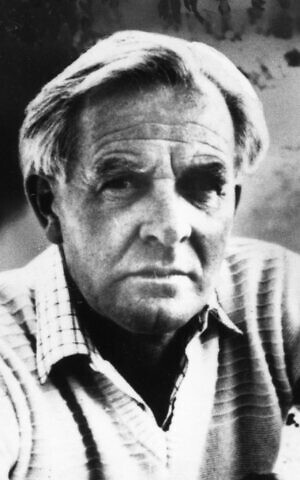In later work, Cold War chronicler skewered arms dealers, financiers and Big Pharma, focused ire on British politicians who turned their backs on Europe to pander to nationalism
By Jitendra Joshi and Richard Ingham, Times of Israel, Monday December 14, 2020
John le Carre, who has died aged 89, shot to fame during the chilly depths of the Cold War as master of the spy thriller, before evolving to become a scathing chronicler of the moral costs of globalization.
Age did not wither the writer’s anger at the establishment, with Brexit — Britain’s divisive departure from the European Union — breathing new life into his espionage oeuvre.
Speaking to AFP in December 2019, he urged Britons to “join the resistance” as they prepared to vote in a general election.
In the event, the country elected Boris Johnson as prime minister, defying le Carre’s characterization of the Conservative leader as “pig-ignorant” in his most recent (2019) novel, “Agent Running in the Field.”
Unhappiness runs deep in le Carre’s work, which numbers 25 novels over more than six decades — a creative span as prodigious as it is acclaimed.  1982 Portrait of British writer John Le Carre. (AP Photo/Str)
1982 Portrait of British writer John Le Carre. (AP Photo/Str)
He was born David Cornwell in October 1931 and his mother Olive fled the family home when he was five, leaving him with his father Ronnie — a tyrant and a conman who was jailed twice for fraud.
In his 2016 memoir “The Pigeon Tunnel,” le Carre recalled fleeing England for the University of Bern in the late 1940s, not only to study German but “to get out from under my father at all costs.”
While at the university in Switzerland, le Carre took his “first infant steps for British Intelligence” doing odd-jobs across the border in Austria.
“It strikes me now that everything that happened later in life was the consequence of that one impulsive adolescent decision to get out of England by the fastest available route and embrace the German muse as a substitute mother,” he wrote.
Berlin Wall
After Bern, le Carre studied at Oxford and taught at top fee-paying school Eton for two years before joining the domestic intelligence agency MI5 in 1958.
Another two years on, he transferred to the overseas spy agency MI6, which would prove the springboard to his literary career.
He first served undercover in Bonn, the capital of the then West Germany, and observed the communist East’s erection of the Berlin Wall.
His third novel “The Spy Who Came in from the Cold” was published in 1963 and brought him overnight fame, although his MI6 status meant he was writing under the pseudonym John le Carre.
With the Berlin Wall as a deathly backdrop, the novel portrays a gone-to-seed British spy, Alec Leamas, who flees to East Germany as a double agent, leaving behind his one weakness: a woman he loves.
Its screen adaptation, with Richard Burton as Leamas, began le Carre’s long entwinement with cinema and TV, cementing his status as a serious author with a mass following.
Le Carre married for a second time, in 1972, to Valerie Eustace, and two years later brought out his masterpiece, “Tinker Tailor Soldier Spy,” a gripping and intricate record of the hunt for a Soviet mole in the highest levels of MI6.
The author himself had been forced to quit the intelligence service in 1964 when MI6 double agent Kim Philby divulged his identity, and those of many other British spies, to Moscow.
“Tinker Tailor” was the first of a trilogy featuring le Carre’s most-loved character — the shy, brilliant but principled British spymaster, George Smiley.
Brexit
When the Cold War ended in 1991, le Carre made a successful transition to a different narrative, skewering arms dealers, drugs traffickers, Russian gangsters, financiers and Big Pharma, whose sins flourished in the new world order.
His 18th novel, “The Constant Gardener” (2001) was arguably his angriest in that post-Cold War era, portraying an unscrupulous pharmaceutical giant preying on impoverished Africans to test its drugs.
Le Carre’s more recent work has returned to his early themes of moral compromise, disillusionment and betrayal, but the anger burns just as bright.
In “A Legacy of Spies” (2017), published a year after Britain voted to leave the European Union, le Carre revives the characters of his 1963 breakthrough.
As an elderly Smiley reflects on what motivated his career, it is clear that the author is targeting a generation of British politicians who turned their backs on Europe and pandered to nationalist sentiment.
The retired spymaster says: “If I was heartless, I was heartless for Europe. If I had an unattainable ideal, it was of leading Europe out of her darkness towards a new age of reason. I have it still.”





